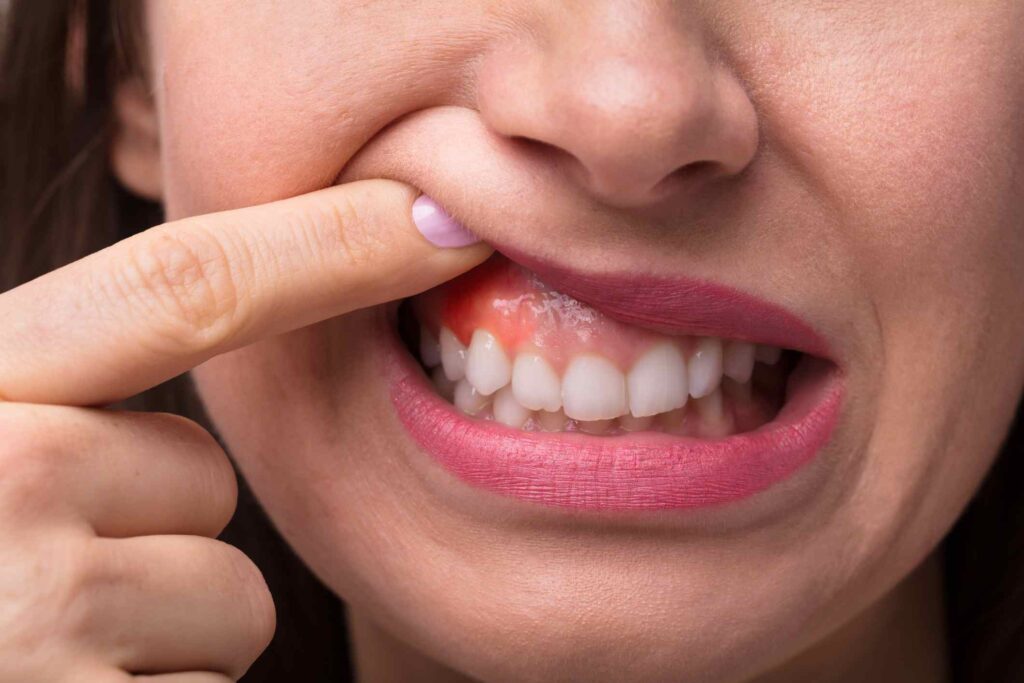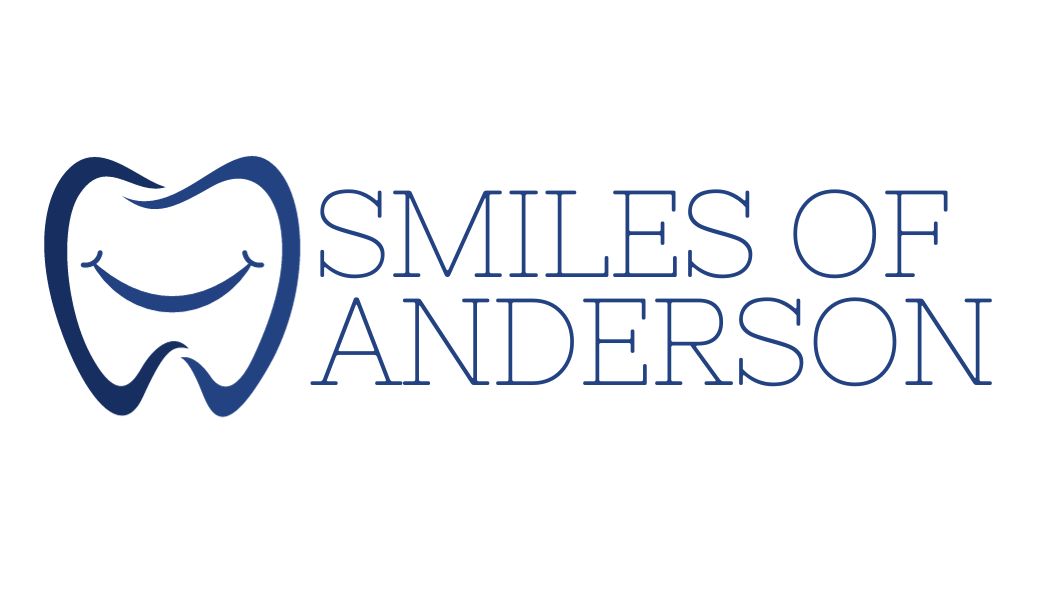Protecting Your Gums: Signs It’s Time for Professional Care
Signs You Need Professional Gum Care for Better Oral Health
Your oral health is a key part of your overall well-being. While we often focus on keeping our teeth white and cavity-free, the health of our gums is just as important. Your gums provide the foundation for a healthy smile and protecting them is essential. At our practice in Anderson, IN, we want you to feel informed and confident about your dental health. This guide will help you understand the signs of gum disease in Anderson, IL, and know when it’s time to seek professional care with us at Smiles of Anderson!

What Is Gum Disease?
Gum disease, also known as periodontal disease, is an infection of the tissues that hold your teeth in place. It’s typically caused by poor brushing and flossing habits that allow plaque, a sticky film of bacteria, to build up on the teeth and harden. In its early stage, it’s called gingivitis. At this point, the gums can become red, swollen, and bleed easily. The good news is that gingivitis is often reversible with professional treatment and good at-home oral care.
If left untreated, gingivitis can advance to a more serious stage called periodontitis. In periodontitis, the gums pull away from the teeth, forming spaces (called “pockets”) that become infected. The body’s immune system fights the bacteria as the plaque spreads and grows below the gum line. This process can break down the bone and connective tissue that hold teeth in place. If not treated, the teeth may become loose and must be removed.
What Are the Early Signs of Gum Disease?
Recognizing the problem early is the best way to prevent serious damage. Many patients experience the initial stages of gum disease without even realizing it. Knowing what to look for can make all the difference. Here are some of the most common early gum disease signs:
- Red, Swollen, or Tender Gums: Healthy gums should be firm and pale pink. It could be a sign of inflammation if your gums are puffy, dark red, or sore to the touch.
- Bleeding Gums: You might notice blood on your toothbrush or floss. Bleeding while brushing or flossing is one of the most common signs of unhealthy gums. It’s not normal, even if it doesn’t hurt.
- Persistent Bad Breath: Bad breath (halitosis) that won’t go away, even after brushing and using mouthwash, can be caused by bacterial buildup in your mouth.
How Do I Know If I Have Gum Disease?
As gum disease progresses, the symptoms can become more noticeable and serious. If you’re wondering, “How do I know if I have gum disease?”, it’s important to look for more advanced signs in addition to the early ones. More advanced symptoms include:
- Receding Gums: Your teeth might start to look longer than they used to. This happens when your gums pull away, or recede, from your teeth, exposing more of the tooth surface.
- Painful Chewing: Discomfort while eating can be a sign that the infection is affecting the ligaments and bone supporting your teeth.
- Loose or Shifting Teeth: If your teeth feel loose or your bite feels different, it may indicate that the underlying bone structure has been damaged.
- Pus Between Teeth and Gums: Seeing pus is a clear sign of infection and requires immediate attention from a dentist.
The only way to know for sure if you have gum disease is to see a dental professional. During a checkup, your dentist or hygienist can measure the space between your teeth and gums to check for pockets, an indicator of periodontitis.
Why Gum Disease Treatment Is Important
Ignoring the signs of gum disease can lead to more than just tooth loss. The bacteria from infected gums can enter your bloodstream and travel to other parts of your body. Research has linked advanced gum disease to a range of other health problems, including heart disease, stroke, diabetes, and respiratory issues.
Treating gum disease is not just about saving your teeth; it’s about protecting your overall health. Professional gum disease treatment eliminates the infection, stops the progression of the disease, and helps you maintain a healthier body. Seeking care in Anderson, IN, is a positive step toward a healthier future.
Gum Disease Treatment Option
We want to reassure you that there are effective treatments available. The right option for you will depend on how advanced your gum disease is. Our team is here to provide a comfortable and stress-free experience. Explore different options:
- Professional Dental Cleaning: For gingivitis, professional cleaning is often enough to reverse the condition. Your hygienist will remove plaque and tartar buildup from above and below the gum line.
- Scaling and Root Planing: This is a deep-cleaning, non-surgical procedure. Scaling involves scraping off tartar from above and below the gum line. Root planing smooths out the rough spots on the tooth root where germs gather, helping the gums reattach to the teeth.
- Medications: In some cases, your dentist may use antibiotics to help control the bacterial infection. This might include a prescription mouth rinse or a gel that is placed in the gum pockets.
- Surgical Treatments: For advanced periodontitis, surgery may be necessary. Options include flap surgery (pocket reduction) to clean the tooth roots and repair bone damage, or bone and tissue grafts to help regenerate lost bone and gum tissue.
How to Prevent Gum Disease
The best approach to gum disease is prevention. Simple, consistent habits can keep your gums healthy and strong.
- Brush Twice a Day: Brush your teeth for two minutes each time with a fluoride toothpaste.
- Floss Daily: Flossing removes plaque and food particles from between your teeth and under the gum line, where your toothbrush can’t reach.
- Use Mouthwash: An antimicrobial mouthwash can help reduce plaque and prevent gingivitis.
- Eat a Balanced Diet: A healthy diet helps your immune system fight off infection.
- Visit Your Dentist Regularly: Regular checkups and professional cleanings are crucial for removing tartar and catching any early signs of unhealthy gums
FAQs About Gum Disease
What are the early signs of gum disease?
The earliest signs are often red, swollen gums that may bleed when you brush or floss. You might also notice persistent bad breath.
Is gum disease reversible?
In its early stage (gingivitis), gum disease is typically reversible with a professional cleaning and improved daily oral hygiene. More advanced stages require more intensive treatment to manage.
Can stress cause gum problems?
Yes, stress can make it harder for your body to fight off infections, including gum disease.
How often should I see a dentist for gum health?
For most people, a checkup every six months is recommended. If you have signs of gum disease, your dentist may suggest more frequent visits.
Your Path to Healthier Gums
Your gum health is a vital part of your smile and your overall wellness. By understanding the signs of gum disease and the importance of professional care, you can take control of your oral health. If you are experiencing any of the symptoms discussed, please don’t hesitate to seek help. Smiles of Anderson is dedicated to providing warm, reassuring, and effective care. We are here to answer your questions and create a treatment plan that makes you feel comfortable and confident. Schedule a visit today to ensure your gums are as healthy as your smile.
